Free Tropical Runtz seeds on orders over $150!
The United States (USA) has some of the most accommodating cannabis laws worldwide, and this is continuously increasing. With 39 states legalizing cannabis, many US-Americans are interested in producing cannabis for recreational or therapeutic uses. However, the law governing cultivation is, at best, hazy. Continue reading to find out where in the United States it is legal to cultivate cannabis.
Cannabis has been one of the most contentious plants in the previous century. It has been heavily stigmatized and the target of extensive cultural appropriation. As a result, several individuals have extremely conflicted feelings about cannabis. Also, only 11 of the 50 states in the USA have not legalized cannabis. Although cannabis has gained acceptance countrywide, a natural increase in states permitting home growing should have occurred.
Moreover, cannabis production at home is still strictly controlled. Since 2020, several projects have begun to emerge, and it is increasingly likely that additional states will soon allow home production. Cannabis cultivation regulations in states that allow recreational or medical cultivation include Alaska, Arizona, and Colorado, among others.
Several requirements must be followed because some states have specific legislation for cannabis home cultivation. Cultivating cannabis has pros and downsides; thus, before you start growing, you should do extensive research on plant types, climate, and other needs. Conversely, you must ensure that the cannabis crops are cultivated following the laws.
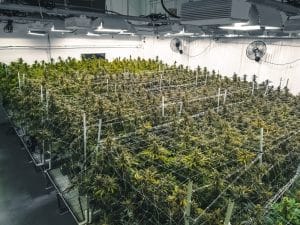
According to cannabis cultivation laws, you should be 21 to produce plants in any state in the USA. In some states, you can only plant a certain number of crops or have a specified area to grow cannabis for recreation.
Medicinal cannabis can be grown in any state where recreational cannabis is legal. Conversely, recreational home growing has a few more limits than medicinal growth. Medical cannabis is becoming increasingly acceptable in society as a whole. Depending on the state you reside in and the prevailing opinion, you may be prescribed cannabis for a sore foot or to alleviate the discomfort of cancer. States that permit indoor cultivation for medical or recreation uses include:
Note that state regulations regulating cannabis growing can vary widely, and each state has its restrictions regarding the number of crops you can develop. For instance, recreation consumers in Alaska can plant up to six plants per individual, but families can only develop a maximum of 12 plants. Similarly, California permits six plants per individual, while counties and towns can impose further restrictions, like limiting plants to be produced indoors or having gardeners register for special licenses.
Meanwhile, cannabis producers in Maine are limited to three mature crops at a time. Since each state has its approach to regulating how citizens develop cannabis, farmers must understand and follow local laws. Furthermore, it’s worth considering that in the 1990s, Oregon, California, and Washington were national leaders in cannabis growing. Also, Oregon was pioneering in liberalizing cannabis production laws.
The following states permit cannabis cultivation for medical uses:
It should be noted that cultivation laws in some states may be stricter. These states permit registered patients (or their caregivers) to grow cannabis. Patients must normally be certified by a doctor to register as medicinal cannabis users. Medical cannabis is only legal for patients who meet certain criteria in most states listed above. Many of these states also restrict where, how, and how many plants a person can cultivate.
For instance, patients in Nevada can produce cannabis if only they live more than 25 miles from a dispensary or cannot go to a dispensary for particular reasons. Patients in Rhode Island can only cultivate up to six cannabis plants (three of which must be mature or flowering), while South Dakota residents can only grow cannabis if they live in an area without a registered dispensary. Again, if you’re a medical patient planning to cultivate your own in any of the mentioned states, read up on your local laws.
Some states have legalized medical cannabis to some extent but do not allow patients to grow their own. These are the states:
The excellent news is that public support for legalization has increased surprisingly in recent years. According to polls, roughly 90% US-Americans feel cannabis should be legalized to some extent. Hemp production (i.e., cannabis with low potency) was delisted for the first time in the Farm Bill in 2018. Also, the DEA has stated that it won’t prosecute or pursue those who buy cannabis seeds (any seed, tissue culture, or plant material having less than 0.3% potent cannabinoids falls under the classification of hemp and is not subject to the Controlled Substances Act). Also, President Joe Biden has officially pardoned those who have been charged with possessing cannabis. Of course, the legality of purchasing and having cannabis seeds for sale in your state is critical, as these laws are continuously being modified.
Some states in the United States have yet to comprehend the potential and benefits of cannabis plants fully. Cannabis usage is not a regular occurrence in states such as Texas. Even other conservative states, such as those listed below, have a negative attitude toward cannabis. The following states have rendered cannabis entirely illegal:
The United States has a multibillion cannabis industry that functions on shaky legal ground. While the federal government keeps on classifying cannabis as a Schedule 1 drug (a substance having no recognized medicinal function and a high potential for addiction, such as heroin or cocaine), 38 states and Washington, D.C. have passed laws to some extent allowing cannabis use. This legal issue arises since all states in the United States are deemed sovereign and have the ability to enact regulations that aren’t covered by the federal constitution. Conversely, particular states have decided to regulate cannabis, even though federal law explicitly forbids its usage, possession, and sale. Federal law takes precedence where state and federal laws conflict, meaning that the federal government could potentially prosecute those in states where cannabis is legal for usage, possessing, growing, or selling.
Cultivating cannabis on an industrial scale is not the same as producing it at home for recreation purposes. State rules vary greatly, and many governments only issue a restricted number of commercial grower licenses. Furthermore, depending on the state you reside, being a commercial producer might entail the following steps:
It is legal to have up to 30 grams or more than an ounce of cannabis in this country. Each state contains its laws about consumption, growing, and selling of cannabis. Some states (like Alberta, British Columbia, and Ontario) have strict regulations prohibiting smoking cannabis in the public. However, under federal law, am individual can produce cannabis by purchasing seeds from a provincially regulated retailer. Also, Canadians can develop up to four plants per household for personal use. Additionally, you will need to obtain a special license if you wish to sell them.
A medical cannabis patient or recreation user can choose to cultivate cannabis at home for several reasons. First, a home farmer understands what is in their cannabis, how it was developed, what nutrients it obtained, and what the curing process entails. There is no uncertainty about the quality since producing cannabis at home allows you to witness what happens at every stage. Also, recreational users and medical patients who live far from a dispensary benefit from the ability to grow cannabis at home due to steady supply of cannabis. Additionally, while home cultivation takes time, it minimizes the necessity to travel long distances, which is particularly helpful for medical cannabis users.
The Justice Department published one of the most prominent memos on federal cannabis enforcement in 2013. The Justice Department stated in the Cole Memorandum that it would not contest states’ legalization legislation then and expected states to undertake vigorous enforcement operations. In 2018, then-Attorney General Jeff Sessions withdrew the Cole Memo and instructed prosecutors to employ established prosecutorial principles and their discretion when pursuing – or declining to prosecute – cannabis charges.
In general, the Justice Department has declined to prosecute instances in which individuals are operating per state law, and it has also not challenged state legalization legislation in court. Observers remark that, even after Cole’s resignation, the Department of Justice has focused on more severe cannabis-related crimes, such as weapons or organized crime.
In most places where cannabis is allowed for recreational use, you must be at least 21 years old. You can even lawfully carry up to one ounce on you at any given moment. Cannabis growing laws allow you to produce more than 12 cannabis plants. Nevertheless, some states, such as Alaska, enable people to cultivate up to 25 plants for recreational use in their private residences.
The Controlled Substances Act of the United States doesn’t distinguish between different portions of the cannabis plant; it simply designates “cannabis” as a Schedule I drug. Anyone found carrying or selling cannabis seeds might face accusations of trafficking or handling a scheduled substance for a long period. Nevertheless, those days seem to be over, thanks to the 2018 Farm Bill. After being questioned by a New York lawyer, the DEA declared in 2022 that cannabis seeds (along with other elements of the crop) qualify as legal hemp provided, they possess no more than 0.3% potent cannabinoids (as stipulated in the 2018 Farm Bill).
The world is changing quickly, and it is hoped that states will legalize cannabis and its cultivation sooner than predicted, although the steps will be small. States that permit medical cannabis growing may also permit recreational usage. Those that permit medicinal cannabis may also permit cultivation, and so forth. Cannabis is gradually being decriminalized over the world with the most significant step taken by the United Nations, which has recognized cannabis for medicinal use by removing it from the list of harmful substances!
The United States might have the world’s largest cannabis sector. However, the legal landscape surrounding cannabis, particularly its cultivation, remains extremely hazy. While developing cannabis remains illegal in the eyes of the federal government, 24 states now enable it for recreational or medical use.
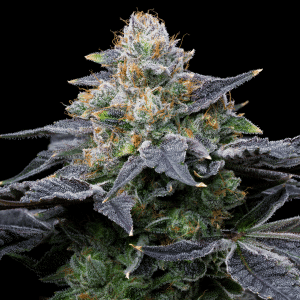
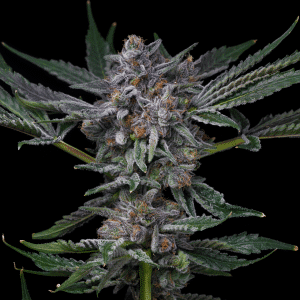
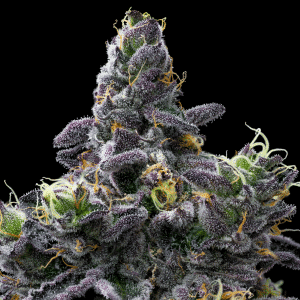
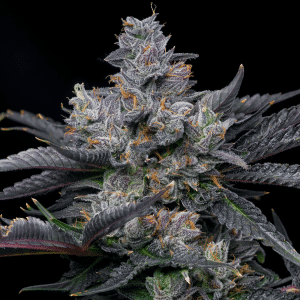
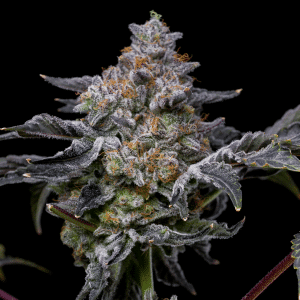
Offers
This product is not for use by or sale to persons under the age of 18. This product should be used only as directed on the label. It should not be used if you are pregnant or nursing. Consult with a physician before use if you have a serious medical condition or use prescription medications. A doctor’s advice should be sought before using any hemp products. All trademarks and copyrights are property of their respective owners and not affiliated with nor do they endorse this product. These statements have not been evaluated by the FDA. This product is not intended to diagnose, treat, cure or prevent any disease. By using this site you agree to follow the Privacy Policy and all Terms & Conditions printed on this site. All products contain less than 0.3% Cannabinoid-compliant with applicable Federal Laws. Please make yourself aware of any and all applicable laws regarding hemp in your jurisdiction. Premium Cultivars accepts no liability or responsibility regarding germination laws in any specific locale state or national jurisdictions.THCA products are not available for shipment to the following states: Hawaii, Idaho, Minnesota, Oregon, Rhode Island, Utah, Vermont *Note: Products with Total THC content above 0.3% must not be shipped to these states.
We want to help you get your hands on the seeds you want, take 20% off your next purchase when you enter your email below!
We want to help you get your hands on the seeds you want, take 20% off your next purchase when you enter your email below!